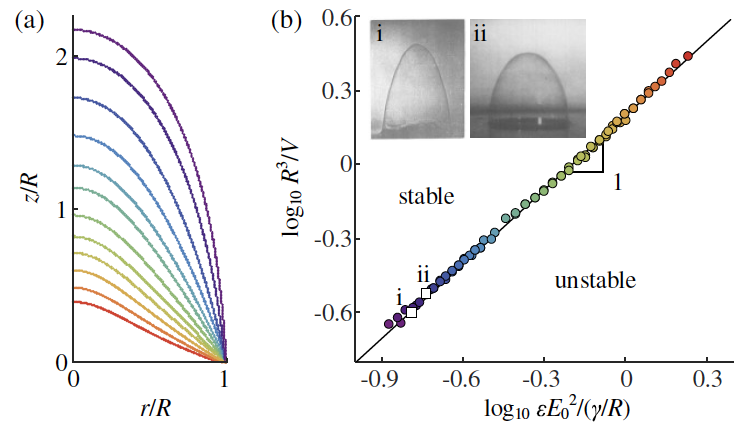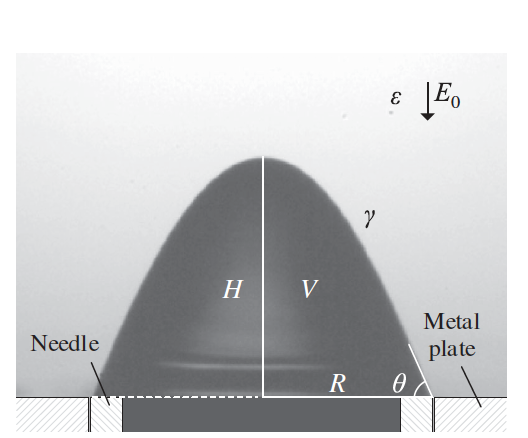
In many physical processes, including cloud electrification, electrospray, and demulsification, droplets and bubbles are exposed to electric fields and may either remain whole or burst in response to electrical stresses. Determining the stability limit of a droplet exposed to an external electric field has been a longstanding mathematical challenge, and the only analytical treatment to date is an approximate calculation for the particular case of a free-floating droplet. Here we demonstrate, experimentally and theoretically, that the stability limit of a conducting droplet or bubble exposed to an external electric field is described by a power law with broad generality that, in practice, applies to the cases in which the droplet or bubble is pinned or sliding on a conducting surface or free floating. This power law can facilitate the design of devices for liquid manipulation via a simple formula that captures the parameter range of bubbles and droplets that can be supported on electrified surfaces.
